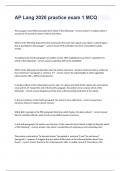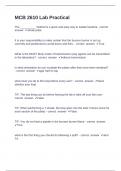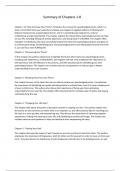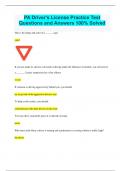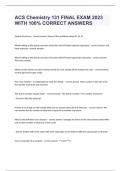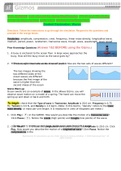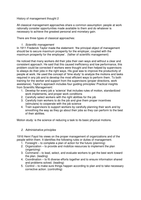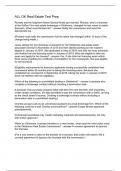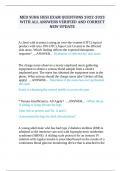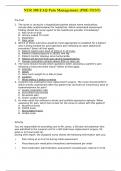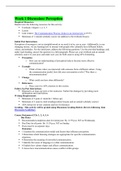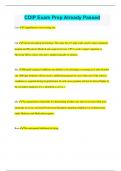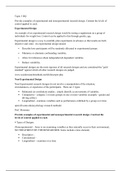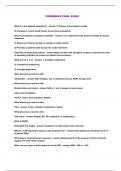What do witnesses
remember?
Crime has escalated in recent years. According to M. Rose
and H. Ritchie (2019), more than 400,000 (405,000) persons were
killed in 2017. This is three times the number of homicides committed
in armed conflict and terrorism combined. As a result, forensic
psychology arose, which aided investigating institutions by using
psychological understanding. Today, forensic psychologists are
concerned not only in understanding why aggressive behaviors occur,
but also in limiting and preventing such actions (Cherry, 2020). One of
the challenging questions in this discipline is: What function does the
witness play in the criminal justice system? In this essay, we will
discuss how the witnesses helped the justice system, and how
research has improved it through the years.
A single confident witness, according to 37% of Americans, is
enough to convict a criminal defendant. However, more than 200
persons who were declared not guilty by DNA evidence were
sentenced based on incorrect eyewitness identification (Simons and
Chabris,2011). Because witnesses often remember distinct
characteristics of a crime, researchers examined participants' ability to
recognise a target's face at various distances and lighting conditions
(Wagenaar and Van Der Schrier, 1996). Consequently, the 'Rules of 15'
for identifying evidence proved to be sufficiently accurate:
The maximum distance from the event is 15 meters.
The minimal level of light is 15 lux.
Although these variables are not under the control of the criminal
justice system, the research is able to investigate their effects and
, provide advice regarding them. In this context, by providing
information relating to the feasibility of accurate identification.
According to research, we are often inaccurate in our estimates of how
long something will persist (temporal duration) or distance. We tend to
overestimate the length of short-duration events, sometimes by as
much as 500 percent. According to Block (1978), the more familiar,
predictable, and simple the interval has components, the shorter the
estimate will be (as when doing simple arithmetic).
Accuracy depends on how long the episode took place (known as the
retention interval), and this accuracy decreases with a longer retention
time. This is what the research has shown when the participants were
asked about the experiences that took place during the previous week,
they tended to date accurately 85–90% of the time. For experiences
that occurred over three months ago, however, accurate dating
dropped to 15–20% (Thompson et al., 1996).
Furthermore, Researchers have shown that people usually tend to set
a date for an event more recent than the actual date of its occurrence,
and this phenomenon is known as ‘forward telescoping.’
Our estimates of people's height and weight are usually inaccurate.
From a study in which 588 people participated, they found that both
height and weight judgments were exaggerated by participants.
These data revealed a "pattern of underestimating above-average
features and overestimating below-average attributes... suggesting a
general regression to the population mean," according to the
researchers (Flin and Shepherd, 1986, p. 35). Their findings also
suggested that the female participant's own height and weight were
utilised as a norm or anchor against which the male's height or weight
was judged (albeit this impact was minimal in female participants'
height judgments and absent in their weight judgments). As a result,
relative assessments may be useful when asking witnesses to evaluate
remember?
Crime has escalated in recent years. According to M. Rose
and H. Ritchie (2019), more than 400,000 (405,000) persons were
killed in 2017. This is three times the number of homicides committed
in armed conflict and terrorism combined. As a result, forensic
psychology arose, which aided investigating institutions by using
psychological understanding. Today, forensic psychologists are
concerned not only in understanding why aggressive behaviors occur,
but also in limiting and preventing such actions (Cherry, 2020). One of
the challenging questions in this discipline is: What function does the
witness play in the criminal justice system? In this essay, we will
discuss how the witnesses helped the justice system, and how
research has improved it through the years.
A single confident witness, according to 37% of Americans, is
enough to convict a criminal defendant. However, more than 200
persons who were declared not guilty by DNA evidence were
sentenced based on incorrect eyewitness identification (Simons and
Chabris,2011). Because witnesses often remember distinct
characteristics of a crime, researchers examined participants' ability to
recognise a target's face at various distances and lighting conditions
(Wagenaar and Van Der Schrier, 1996). Consequently, the 'Rules of 15'
for identifying evidence proved to be sufficiently accurate:
The maximum distance from the event is 15 meters.
The minimal level of light is 15 lux.
Although these variables are not under the control of the criminal
justice system, the research is able to investigate their effects and
, provide advice regarding them. In this context, by providing
information relating to the feasibility of accurate identification.
According to research, we are often inaccurate in our estimates of how
long something will persist (temporal duration) or distance. We tend to
overestimate the length of short-duration events, sometimes by as
much as 500 percent. According to Block (1978), the more familiar,
predictable, and simple the interval has components, the shorter the
estimate will be (as when doing simple arithmetic).
Accuracy depends on how long the episode took place (known as the
retention interval), and this accuracy decreases with a longer retention
time. This is what the research has shown when the participants were
asked about the experiences that took place during the previous week,
they tended to date accurately 85–90% of the time. For experiences
that occurred over three months ago, however, accurate dating
dropped to 15–20% (Thompson et al., 1996).
Furthermore, Researchers have shown that people usually tend to set
a date for an event more recent than the actual date of its occurrence,
and this phenomenon is known as ‘forward telescoping.’
Our estimates of people's height and weight are usually inaccurate.
From a study in which 588 people participated, they found that both
height and weight judgments were exaggerated by participants.
These data revealed a "pattern of underestimating above-average
features and overestimating below-average attributes... suggesting a
general regression to the population mean," according to the
researchers (Flin and Shepherd, 1986, p. 35). Their findings also
suggested that the female participant's own height and weight were
utilised as a norm or anchor against which the male's height or weight
was judged (albeit this impact was minimal in female participants'
height judgments and absent in their weight judgments). As a result,
relative assessments may be useful when asking witnesses to evaluate




